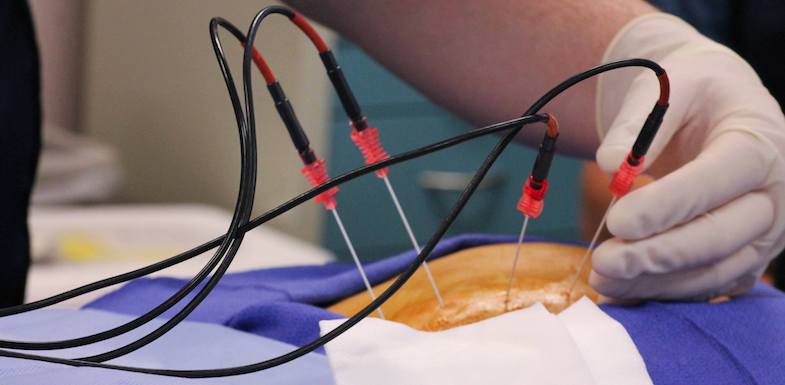In the ever-evolving field of medical technology, innovative treatments are constantly emerging to provide patients with effective solutions for various health conditions. One such advance is radiofrequency ablation, a minimally invasive procedure that provides a ray of hope for individuals suffering from chronic pain and certain medical conditions. Experience effective and minimally invasive radiofrequency thermal ablation in Schaumburg, IL. Find out how a skilled team utilizes advanced technology to provide safe and efficient treatment for various conditions. Find relief and improve your quality of life with our trusted radiofrequency thermal ablation services.
Radiofrequency ablation (RFA) is a minimally invasive medical procedure that uses high-frequency electric currents to generate heat and destroy abnormal tissue. It has many advantages in different areas of Medicine. Here are some important advantages of radiofrequency ablation.
What Is Radio Frequency Ablation?
Radiofrequency ablation is a medical procedure that uses heat generated from radio waves to target and eliminate specific tissues in the body. It is commonly used to treat chronic pain conditions, such as back pain, neck pain, and joint pain, by inhibiting pain signals sent to the brain. The application of radiofrequency ablation has also been found in the treatment of certain medical conditions, including certain cardiac arrhythmias, liver tumors, and varicose veins.
The Key Benefits Of Radio Frequency Ablation
Minimally Invasive
Radiofrequency ablation’s minimum invasiveness is one of its main benefits. Unlike conventional surgical procedures, radiofrequency ablation does not require large incisions or extensive tissue disruption. It involves inserting a thin, special needle through the skin into the target area.
Non-surgical Treatment:
RFA is a non-surgical alternative to conventional open surgery. It involves inserting a thin needle into the target area, guided by imaging techniques such as ultrasound or CT scan. This reduces the need for extensive incisions, reduces postoperative pain and enables faster recovery.
Precision and Targeted Therapy:
RFA provides targeted therapy by accurately directing electrical currents to the desired area. This process selectively destroys abnormal or diseased tissues, reducing damage to nearby healthy structures. This accuracy allows effective treatment with fewer side effects.
Effective Pain Relief
Radiofrequency ablation can be a game-changer for those with chronic pain issues. By targeting and inhibiting the nerve pathways responsible for transmitting pain signals, radiofrequency ablation can provide long-lasting pain relief.
Customized Treatment
Radiofrequency ablation is very adaptable to the specific requirements of every patient. The size and position of the ablation zone may be carefully controlled by medical personnel, guaranteeing that only the targeted tissues are impacted.
Minimal Complications:
Compared to traditional surgical interventions, RFA has a lower risk of complications. Since it is performed through small incisions, the chances of infection, bleeding, and scarring are reduced. The procedure also has a shorter recovery time and allows patients to resume their daily activities faster.
Versatility:
Radio Frequency Ablation can be utilized in various medical specialties. It is commonly employed in oncology for the treatment of liver, lung, kidney, and bone tumors. It is also effective in managing cardiac arrhythmias, and varicose veins, and in cosmetic procedures such as the removal of benign skin lesions.
Quick Recovery
Compared to traditional surgical procedures, radiofrequency ablation typically leads to a faster recovery. Patients often experience minimal discomfort and can return to their normal activities within a short period, sometimes even on the same day as the procedure.
Conclusion,
Radio Frequency Ablation offers numerous benefits in the medical field. Its non-surgical nature, precision, and targeted therapy, along with the ability to provide pain relief and minimal complications, make it a valuable treatment option. As technology advances, RFA continues to evolve, improving patient outcomes and expanding its applicability in diverse healthcare domains.
Read More ( Click Here )



